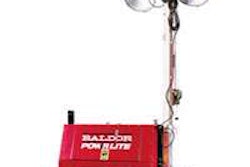The headline on a recent Thomas Friedman column grabbed my attention: “Real men put tax on gas.” First, because any time you mention “gas” and “tax” together, I’m apt to pay attention, and second, the at-first-glance tone mirrored a stellar column I’d just read by Kirk Landers, the editor emeritus of our sister publication, Better Roads.
But, alas, New York Times columnist Friedman and Landers only agree on one point: it takes true courage to raise a tax in these times (although the same doesn’t seem to be true of the deficit). Friedman calls Americans wimps because we don’t raise gas taxes as a punitive strike against fossil fuels. He envisions a $1 tax hike that would fund a deficit pay down, pay for new health care, plus give a 10 cent cushion to help alleviate “the burden of such a tax on the poor and those who need to drive long distances.” Notice that the words “roads” and “bridges” are completely missing. Remember Minneapolis, Mr. Friedman?
Landers, on the other hand, after pointing out that many in Congress are U.S. veterans who’ve faced death in combat, expresses his incomprehension that these same people now cower at a tax hike that might threaten their careers. “And yet now, at the time of their lives when the worst that could happen to them is being banished to live the good life, many of them cannot bring themselves to increase a user fee that has not been raised since 1993,” Landers writes. (To read his full column, go to www.betterroads.com, and check out the October issue.)
And so the debate goes on. As I write this in mid-September, a phalanx of construction and affiliated associations have lined up support what seems to be the next best thing to our dashed dreams of an on-time transportation program reauthorization: a three-month extension of the current bill, proposed by Rep. James Oberstar (D-Minnesota), chairman of the House Transportation and Infrastructure Committee.
The continued lack of excitement in Congress about “our bill” is adding to the endless holding pattern this industry has been in all year. In Dante’s Divine Comedy, the author depicts limbo as the first circle of hell, perhaps an apt description of what we’re going through.
U.S. Transportation Secretary Ray LaHood trumpeted in early August the stimulus program had funded its 6,000th highway project. But according to a Congressional Quarterly report that same month, uncertainty about tomorrow’s funding is prompting state transportation officials to fund simple repair projects instead of major jobs. These officials have become reluctant participants in a guessing game of just how much money they’ll be able to bid out even a year from now.
Meanwhile, the U.S. Bureau of Labor Statistics has pegged construction’s unemployment rate at 16.5 percent, compared to an overall unemployment rate of 9.6 percent. It’s widely believed that while stimulus money may have preserved construction jobs, it sure hasn’t created many.
Lately the media has been testing out the “signs of recovery” phrase – but for our industry, we know not to expect an instant uptick.








